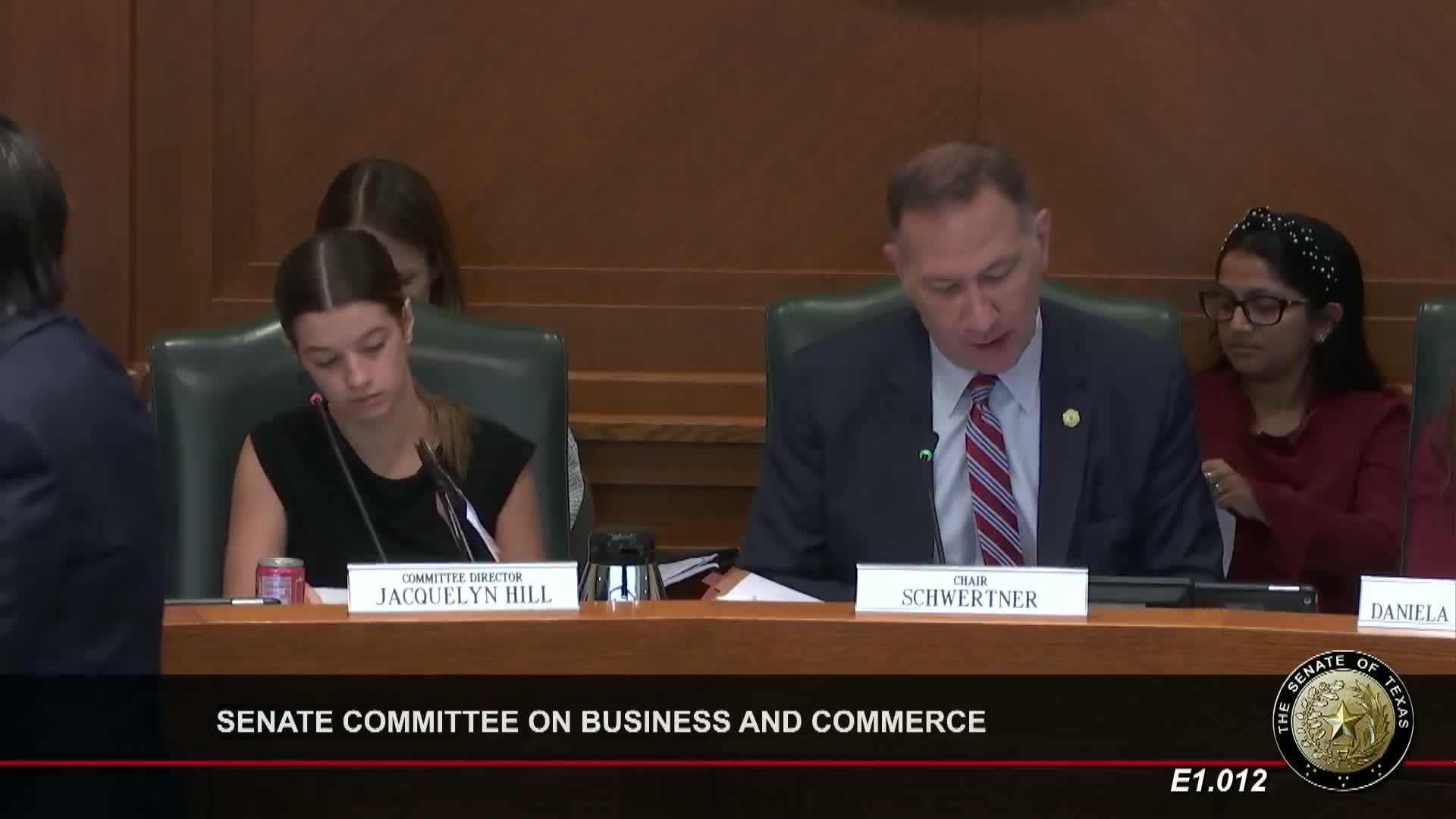Attorney General’s corporate investigatory powers clarified in bill that drew stakeholder questions
Get AI-powered insights, summaries, and transcripts
Subscribe
Summary
Senate Bill 23‑40 would update a long‑standing business‑organization statute to clarify the attorney general's authority to take pre‑suit depositions, require sworn written answers, and set the judicial review process; the AG's office said the bill modernizes century‑old code language, while witnesses asked for safeguards for small entities.
Senate Bill 23‑40 proposes to clarify and modernize the attorney general's authority to investigate the organization, conduct and management of corporations registered in Texas by specifying pre‑suit oral deposition authority, the ability to require sworn answers to written questions, and procedures for judicial review.
Author Senator Swartner described the substitute as providing a clearer statutory framework for investigative mechanisms, saying the bill "outlines the authority to include ... the ability to conduct pre suit oral depositions, and ... require sworn answers to written questions," and that the substitute makes technical changes to provide courts of jurisdiction for petitions for review.
Jennifer Roschetti, a resource witness from the Attorney General's Consumer Protection Division, said similar investigatory powers exist in other business statutes (antitrust and consumer protection statutes) and that the bill would align the older business‑organization code with modern investigative practice. Roschetti said clarifying language was intended to avoid the kind of uncertainty raised in prior litigation and to provide procedures mirroring those already used in other statutory contexts.
Opponents questioned safeguards for small nonprofits and the possibility of politically motivated use. Senator Menendez asked whether protections exist, especially regarding potential Fourth and Fifth Amendment concerns; Roschetti pointed to existing judicial review mechanisms, petition to quash options and civil‑procedure remedies. She also noted the bill clarifies criminal penalties for tampering and noncompliance that were already present in older statute language.
The committee closed public testimony and left SB 23‑40 pending while parties continue to discuss procedural protections and scope.
